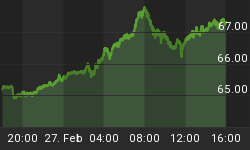If you are looking for evidence that QE has done anything to improve income for the bottom half of the nation you will not find it in data released today from the Census Bureau.
Please consider the census report on Income, Poverty and Health Insurance Coverage in the United States for 2014.
Highlights
- Median household income was $53,657 in 2014 [down 1.5% from 2013]. This is the third consecutive year that the annual change was not statistically significant, following two consecutive years of annual declines in median household income.
- In 2014, real median household income was 6.5 percent lower than in 2007, the year before the most recent recession.
- The real median income of non-Hispanic White households declined 1.7 percent between 2013 and 2014. For Black, Asian, and Hispanic-origin households, the 2013-2014 percentage changes in real median income were not statistically significant
- The real median income of households maintained by a foreign-born person increased by 4.3 percent between 2013 and 2014. In contrast, the median income of households maintained by a native-born person declined 2.3 percent.
Real Median Household Income
Household Income Progress
- Real median household income for all races is where it was in 1996.
- Real median household income for white non-Hispanics is where it was in 1997.
- Real median household income for blacks is where it first was in 1995.
- Real median household income for Hispanics is where it first was in 1998.
- Real median household income for Asians is where it first was in 1995.
Real median household income for all races is 6.5 percent lower than 2007, and 7.2 percent lower than the median household income peak ($57,843) that occurred in 1999.
Earnings of Men vs. Women - Fulltime Workers
Earnings Progress
- The female-to-male earnings ratio is at an all-time high of 79 percent
- Real median earnings of male fulltime workers is at a 1971 level
- Real median earnings of female fulltime workers is at a 2001 level
By the way, those "real earnings" numbers assume you believe the government's measure of inflation. Note that the CPI does not reflect home prices or property taxes, and is at best a crude, inefficient, measure of prices.
Poverty
The poverty rate is where it was in 1966.
On August 20, 1964, President Lyndon B. Johnson signed the "Economic Opportunity Act" kicking off his "Great Society" and the "War on Poverty".
Johnson stated "Our aim is not only to relieve the symptom of poverty, but to cure it and, above all, to prevent it".
Until Johnson declared a war on poverty there was actually progress on poverty.
In 1996, president Bill Clinton signed the "Personal Responsibility and Work Opportunity Act" on a mission to "end welfare as we know it".
President Clinton succeeded, in a perverse way.
For details of Clinton's success, please see States Have an Incentive to Promote (Not Stop) Disability Fraud; So How Much Fraud Is There?


















